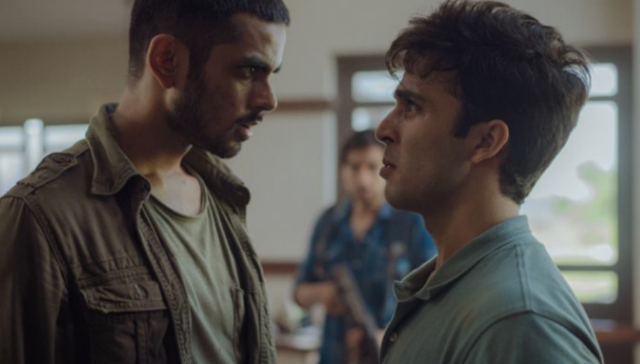In Faraaz, Hansal Mehta doesn’t take time to get to the point. He never does, actually. Beating around the bush is never a favourite sport for Mehta. Terrorism and its homicidal hangover have been Mehta’s leading preoccupations since the wonderful Shahid and the brutal Omerta. With Faraaz he completes his ‘terror trilogy’, although the term seems highly frivolous considering how important each of these three films are in showing the underbelly of terrorism without taking sides. It doesn’t take long for the group of boys who have collected together at the Holey Artisan Café in Bangladesh on 1 July 2016 to start gunning down those patrons who were unfortunate enough to be at the café that fateful evening. Mehta known to be a sinewy fat-free storyteller, leaves no room for humbug, as the Café becomes a rallying point for a night of bloodbath. There have been a number of films recreating real-life terror attacks, many of them based on 9/11 and, nearer home, the 26/11 carnage.
The Bangladesh attack is a relatively raw nerve that requires a lot of sensitivity and guts to be tinkered with. Mehta has never lacked in either quality. He seizes the fateful night with both hands and constructs a plot that breathes a believable air throughout. In the way police bungled initially in handling the attack, the way the authorities are shown to be bickering amongst themselves as precious time ticks away putting hordes of captive lives into the death zone, the film has us on tenterhooks. It is as if we are there outside the scene of the crime peering anxiously into the distant chaos wondering what will happen next, and who goes next. It is interesting how writers Ritesh Shah, Kashyap Kapoor and Raghav Kakkar create an equipoise between the crisis and its resolution without grappling to maintain a moral balance. The group of boys shown to be perpetrating the mayhem are barely out of their teens. In an early sequence, we see them being rebuked by their handler, going by the obviously-fake name of ‘Rajeev’, for fighting over food. “Will you all be able to handle it?” Rajeev wonders about the impending attack. We wonder the same as we see them squabbling and struggling to remain true to their cause. The bloodsoaked ‘cause’ is challenged by Faraaz a foreign-educated Bangladeshi son of a elite family whose mother ( Juhi Babbar , terrific) throws her weight around outside trying to get her son out of the Café while inside, Faraaz tutors the primary terrorist on what is true Islam. Faraaz is the true hero of the film. Aditya Rawal as the primary terrorist gives the performance that this brutal and brilliant film deserves. Whether making wry comments on unIslamic behaviour, getting a dressing-down from a westernized Bangladeshi kid on true Islam or reciting lines from the Holy book (impeccable diction), Aditya just won’t let our attention stray from him. I am afraid the other performances just don’t match up to young Rawal’s powers of reconnaissance. He is a talent to watch out for. That Hansal Mehta is able to weave this headline on one night of barbarism into a work of renewable resonance is a measure of his skills in harnessing cultural–religious violence into a film that never feels like a film. Subhash K Jha is a Patna-based journalist. He has been writing about Bollywood for long enough to know the industry inside out. Read all the Latest News , Trending News , Cricket News , Bollywood News , India News and Entertainment News here. Follow us on Facebook, Twitter and Instagram


)
)
)
)
)
)
)
)
)



